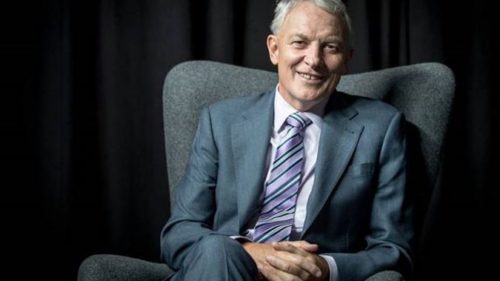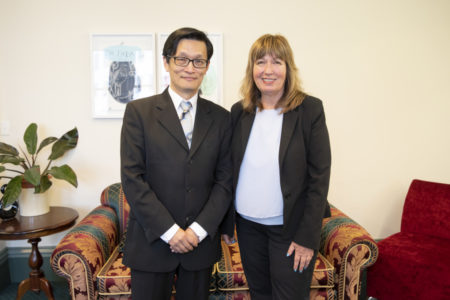- An average general rate increase of 3.5 per cent.
- An increase to the Uniform Annual General Charge of 3.5 per cent.
- Continuation of Long-term Differential Strategy.
- No changes to Regional Fuel Tax, Water Quality Targeted Rate, Natural Environment Targeted Rate.
- That it is prudent to not balance the budget for 2020/2021 financial year.

Decision-making for this year’s Emergency Budget has been one of the toughest in the history of Auckland Council, said Mayor Phil Goff, as councillors have worked to plug a $750 million fiscal hole.
Councillors will workshop the final details of the budget today and it will then be decided in the Finance and Performance Committee tomorrow. As part of the usual budget process, Mayor Goff released his Mayoral Proposal, which is a culmination of the feedback he has received from both councillors and local boards.
“Councillors have worked very collaboratively over the last several months to try to come to a consensus on where we need to prioritise council’s spend and where we can make cuts to our budget. None of these have been easy decisions, but as governors of this city, we have to make the hard calls,” said Mayor Goff.
“For the first time, as far as I am aware, all the local boards have supported the same rates rise, as have most of the councillors in workshop sessions. That is why the proposal this year is a 3.5 per cent rates rise as indicated in 2018.
“At the time we consulted with Aucklanders, we didn’t know about the extra $224 million we needed to find for the city’s water infrastructure to reduce the risk of severe water restrictions with forecasts of a dry spring and summer.
“A majority of Aucklanders told us that we need a rates rise to preserve the things they value, such as libraries, community services and environment protection. This was echoed by councillors and local boards.
“I appreciate that some people will be suffering as a result of Covid-19; that is why we are setting aside $50 million for rates relief and also suspending the targeted rate on visitor accommodation.
“That said, we need to match our spending to our reduced income. Council has to become a leaner and more adaptable organisation. With a reduction already of over 600 temporary and contract workers, there will be a further reduction of over 500 permanent jobs. Staff and elected members have taken salary cuts and budgets for non-essential spending slashed.”
Cuts have been made in services and investment in some infrastructure projects have been deferred, reducing spending by hundreds of millions of dollars, he said.
“However, in the budget, we have strived to maintain critical services for Aucklanders and worked to ensure we are continuing to build the city’s infrastructure. Continued expenditure is necessary to make up for decades of underspend on our roads and public transport infrastructure, as well as water pipes to create lasting assets for the city and to help economic recovery and job growth,” the Mayor said.
Finance and Performance Committee chair Desley Simpson said, “This budget has been a significant financial challenge for every governance arm of Auckland Council as it impacts every part of our business and operations. That’s why it was important to me that we approached our deliberations and decision-making collectively.
“Having all 21 local boards resolve to support 3.5 per cent, in my opinion, came because they had been with us from day one, clearly understood the challenges and consequences, and wanted the best for their communities. I sincerely thank them for their time and dedication.
“It has been hundreds of hours of hard work and robust discussion, but we will finally land a budget tomorrow which doesn’t cripple our future but assists Auckland’s rebuild post Covid-19.”

Howick Local Board chair Adele White told the Times the board had examined the matter at length.
“After considerable deliberation at the Local Board business meeting of July 9, the Howick Local Board voted to submit on an average general rate increase of 3.5 per cent,” White said.
“This was with the knowledge that it would give our community considerably more resource than under a 2.5 per cent scenario.”
Howick Ward Councillors Sharon Stewart and Paul Young also spoke ahead of tomorrow’s final decision-making at tomorrow’s Finance and Performance Committee meeting.
“We are facing unprecedent times and an Extraordinary Emergency Budget is needed to get Aucklanders through,” Councillor Stewart said.
“Whatever the outcome of tomorrow’s budget, it has been refreshing to see collaboration between the Governing Body, Local Board and, most importantly, the people of Auckland to help us reach a decision.”
Councillor Young said councillors are still workshopping the budget in an all-day council meeting today.
“This is a very challenging budget for Auckland Council due to the significant loss of revenue and the additional cost of facing a 1 in 200 year drought,” Councillor Young said.
“Regardless of the result, from start to finish it has been great to see all councillors working together to achieve the best possible outcome for Auckland. A final decision will be made tomorrow.”
Final decision-making will be tomorrow at the Finance and Performance Committee, followed by endorsement at the Governing Body.









